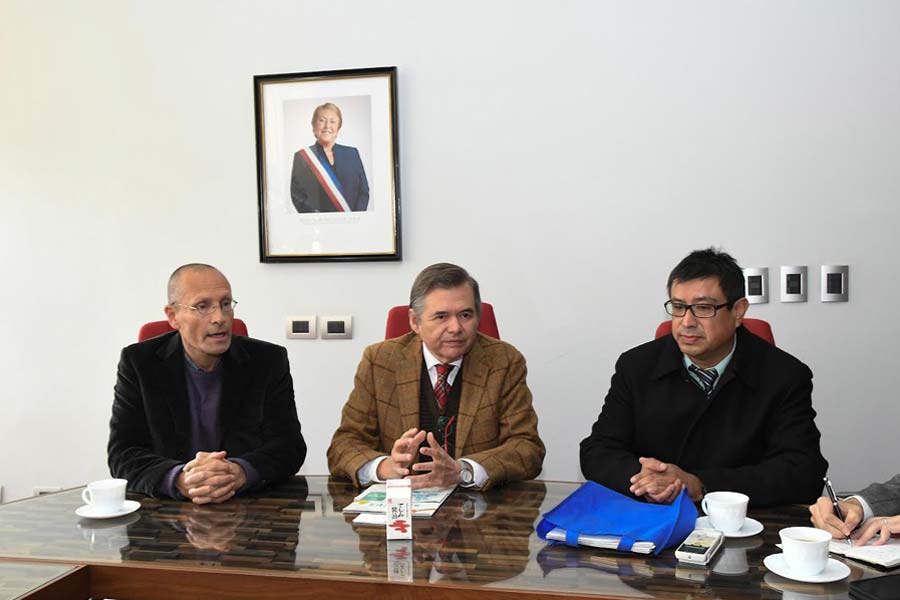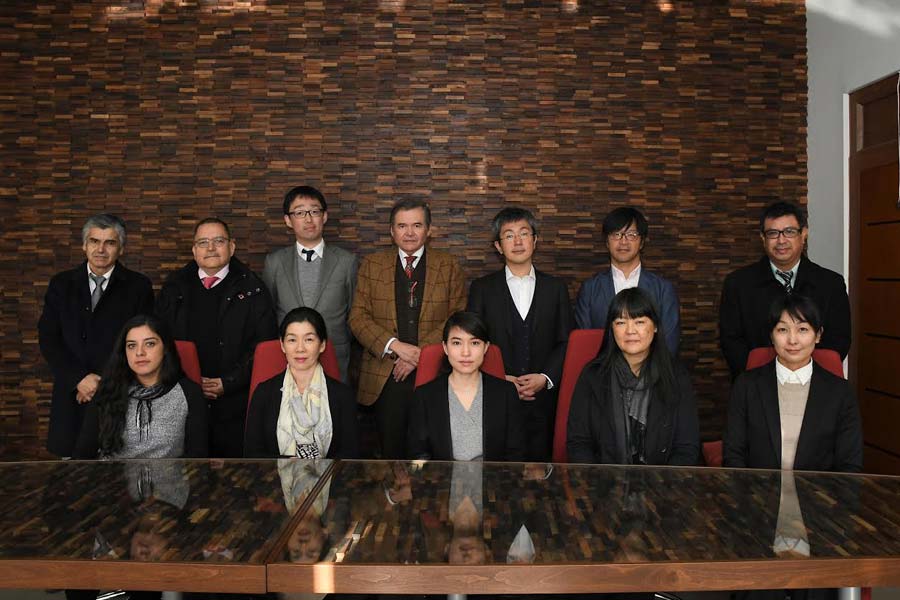|
Thanks to funds of the Japanese government, through the International Cooperation Agency (JICA) and the Agency of Science and Technology (JST), a three billion Chilean pesos worth project was awarded to the Universidad de La Frontera, which will have a scientific, economic and social impact. The idea is to avoid red tide caused economic losses in the salmon industry by using a detection kit of easy use for the industry.
|
Monitoring, predicting and detecting red tide outbreaks in southern Chile, especially in areas of salmon farming for export, is the main objective of a group of Chilean scientists who have just joined a research team at the Kyoto University, the University of Okayama and the Japanese Research Institute of Fisheries Science.
Dr. MilkoJorquera, researcher at the UFRO and one of the managers of the initiative, said, that the Universidad de La Frontera is favored to be part of this sustainability project, worldwide and in Chile. Together with scientists of the Universidad de Los Lagos and the Universidad de Antofagasta, they form the Chilean counterpart of the initiative. The three entities will contribute to this mega-project by using their fields of expertise, seeking to complement the knowledge.
“We will not only cover the scientific and technological area, but also the industrial, economic and above all,the social one. This last point is vital, because all the advances and technologies that we can develop and apply can benefit those, who are impacted by the farming and export of salmon."
KIT
Chiaki Kobayashi of the JICA's Latin America Department, specifies that it is extremely important to contribute to the development of this industry and thanks to this project, the salmon industry in Chile can anticipate events, make decisions and have indicators to know how to act in case of a new outbreak of red tide or other pollutants.
"Food safety is relevant for us, and the development of a monitoring and forecasting kit is indispensable to visualize eventual outbreaks of red tide or other contaminants, so that companies can make decisions in advance, based on the information, and know how to proceed."
Dr. Jorquera adds that the study will include biological aspects and will investigate all microorganisms that are present, while establishing indicators to build the kit with parameters that could cover other threats to the salmon industry.
Chilean Counterpart
Dr. Fumito Maruyama of the Kyoto University will be in charge of the project, along with the JICA and the JST. In Chile, the Universidad de La Frontera will contribute with scientific knowledge and support, as well as providing highly complex equipment for analysis, through the Scientific and Technological Bioresource Nucleus (BIOREN-UFRO).
The Universidad de Los Lagos will support the studies, and according to Dr. Gonzalo Gajardo - researcher at his University - the focus will be on sample taking, initial processing and contributions to the metagenomics. The Universidad de Antofagasta, represented on this occasion by Dr. Carlos Riquelme, will participate in the area of microalgae-bacterial interaction. "We have a center that deals with this interaction, and it is very interesting to participate in this initiative. We hope to have results with an impact on science and R & D & I, and aspire to influence public policies in this area, based on the results of this mega-project."
Chile is the world´s second largest salmon exporting country and Japan is the second biggest importer, since their diet is based on the consumption of this animal, in large part. But the latest outbreak of red tide meant a loss of more than 800 million dollars for the Chilean industry, affecting large part of the production in the Los Lagos Region.

Written by: Lorena Espinoza Arévalo
Vice-Rectorate of Research and Postgraduate Programs
|



